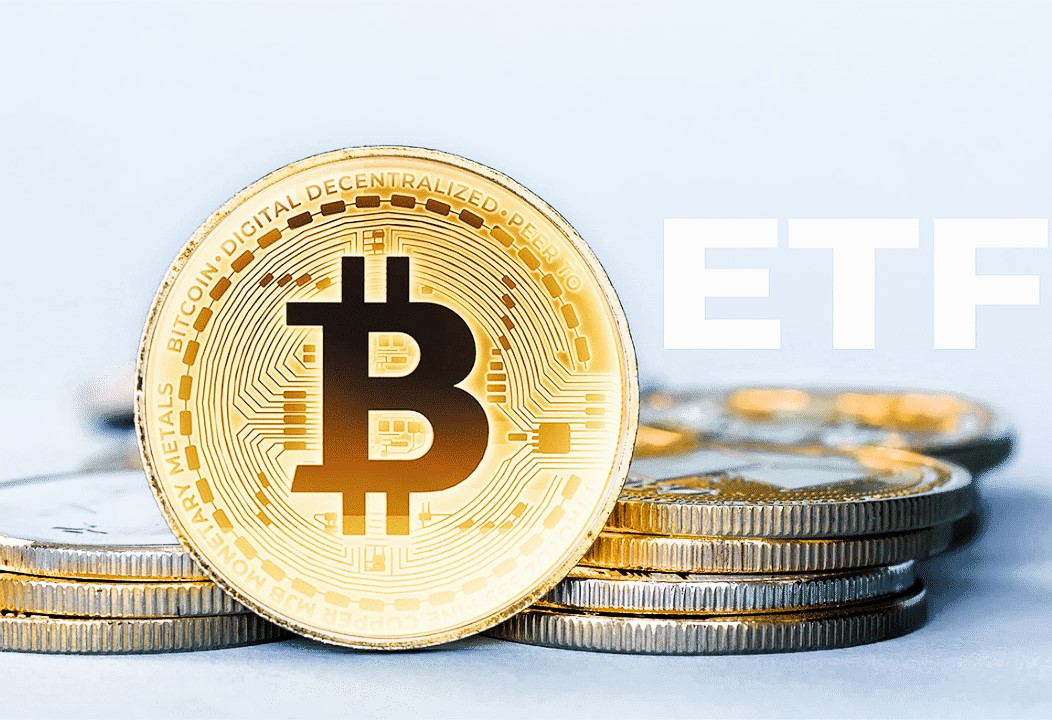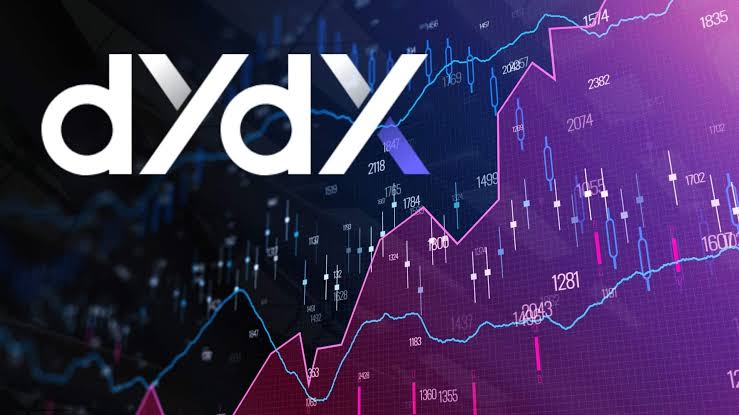By 2025, Bitcoin ETFs (Exchange-Traded Funds) will be essential in closing the gap between institutional investors and the crypto market.
As we move into 2025, several trends are expected to drive the impact of Bitcoin ETFs on institutional adoption. To begin, let’s look at what Bitcoin ETFs are.
- 1 What is Bitcoin ETF?
- 2 The Current State of Institutional Adoption of Bitcoin Adoption
- 3 How Bitcoin ETFs Can Boost Institutional Adoption
- 4 Why 2025 is a critical year for Bitcoin ETFs and institutional Adoption
- 5 Benefits of Bitcoin ETFs for Institutional Investors
- 6 Potential Challenges facing Bitcoin ETFs
- 7 Future of Bitcoin ETFs and Institutional Adoption
- 8 Conclusion
What is Bitcoin ETF?
A Bitcoin ETF is an exchange-traded fund that monitors Bitcoin’s price, allowing investors to invest in the cryptocurrency without having to deal with the actual process of purchasing, storing, or safeguarding it.
This is especially beneficial for large institutional investors, who face regulatory and operational hurdles when it comes to directly holding crypto assets.
Difference from Direct Bitcoin Investment
Investing in Bitcoin ETFs provides significant advantages over directly purchasing Bitcoin. For institutions, it offers:
- Ease of Use: Institutions do not need to set up crypto wallets or deal with private keys, which simplifies the process of securing digital assets.
- Regulatory Oversight: Financial bodies regulate ETFs, providing institutional investors with an additional layer of protection and trust.
- Lower Risk Exposure: Bitcoin ETFs are frequently backed by recognized financial institutions and follow traditional investment principles, making them less volatile than directly holding Bitcoin.
Bitcoin ETFs facilitate institutional investors’ entry into the cryptocurrency market by providing a typical investment structure.
The Current State of Institutional Adoption of Bitcoin Adoption
Bitcoin’s institutional adoption has grown gradually since its inception. Over the last few years, prominent financial institutions, hedge funds, and corporate treasuries have begun to acknowledge Bitcoin as a real asset.
This transition has been fueled by a number of factors, including rising awareness of Bitcoin’s potential as a store of value, expanding institutional infrastructure, and broader acceptance of digital currencies in traditional finance.
Key players, like MicroStrategy, Tesla, and many investment firms, have made big Bitcoin purchases, indicating a willingness to incorporate Bitcoin into their financial strategies.
According to sources, institutional investment in Bitcoin has skyrocketed, with multiple surveys indicating that more than 70% of institutional investors regard cryptocurrencies, particularly Bitcoin, as a vital component of their portfolios.
The emergence of Bitcoin investment products, such as futures contracts and Bitcoin ETFs, has also played an important role in enabling this move, allowing institutions to get exposure without the difficulties associated with direct ownership.
Barriers to Entry
Despite these encouraging improvements, various impediments still prevent widespread institutional use of Bitcoin.
- Volatility: Bitcoin’s famed price volatility remains a major issue for institutional investors. While some institutions are ready to take the risk, others are apprehensive, fearing the possibility of sharp price swings that could affect their investments.
- Regulation: The regulatory landscape for cryptocurrencies is continually changing. Institutions are especially cautious because of the uncertainty around compliance, taxation, and reporting obligations.
Regulatory frameworks might differ greatly among jurisdictions, adding complexity for organizations wishing to invest in Bitcoin.
Direct investment in Bitcoin has various technical obstacles, including understanding wallet management, private keys, and security protocols. These complications may dissuade traditional investors who prefer simpler investment products.
- Custodial Concerns: Institutions frequently worry about the security of their assets. The possibility of hacking, theft, and operational breakdowns with cryptocurrency custodial solutions raises concerns about the security of Bitcoin holdings.
As a result, many institutions seek products that provide enhanced security and compliance.
- Lack of Traditional Infrastructure: Although the Bitcoin market has made tremendous progress toward developing infrastructure, institutions frequently choose products that fit inside their established investment frameworks.
The lack of defined protocols for investing in Bitcoin can impede institutional adoption.
While institutional adoption of Bitcoin has increased significantly, difficulties exist that may affect its trajectory. Overcoming challenges such as volatility, regulation, and complexity is critical for enticing more institutions to enter the Bitcoin market.
Continued technological advancements and regulatory clarification will be critical to creating a more favorable environment for institutional investment in Bitcoin. As time passes, the landscape may change considerably, altering how institutional investors perceive and engage with this digital asset.
How Bitcoin ETFs Can Boost Institutional Adoption
Regulatory Clarity and Trust
The approval of Bitcoin ETFs by regulatory authorities such as the SEC adds a crucial element of legitimacy that institutional investors want. Institutions tend to avoid markets with uncertain regulatory frameworks because of compliance concerns.
Bitcoin ETFs help to close this gap by complying to established financial regulations, lowering uncertainty, and promoting trust. By launching ETFs on existing exchanges, these products provide a familiar trading environment for institutions, lowering the potential risk associated with direct crypto investments.
Furthermore, Bitcoin ETFs adhere to traditional financial operational standards, including SEC monitoring and explicit tax implications. This regulatory clarity signals to institutional investors that Bitcoin has entered the realm of recognized financial products, resulting in increased trust and involvement in the industry.
Reduced complexity
One of the primary reasons Bitcoin ETFs can boost institutional adoption is that they eliminate the technical restrictions associated with direct Bitcoin investments. Institutional investors generally avoid dealing with wallets, private keys, and the intricacies of custodial solutions.
Bitcoin ETFs are a conventional investment instrument that eliminates these worries, allowing institutions to obtain Bitcoin exposure in the same way they would invest in equities or commodities.
Because of their ease of access, Bitcoin ETFs can be added to the current investing portfolios alongside traditional assets such as bonds, mutual funds, and other ETFs.
This simplicity lowers operational expenses for institutions and makes Bitcoin a more appealing alternative for diversification without the bother of navigating the cryptocurrency world.
Liquidity and market depth
The introduction of Bitcoin ETFs provides tremendous liquidity to the market. Institutional investors often deal with large-scale investments, and Bitcoin ETFs provide the liquidity required to make trades without affecting the fundamental price of Bitcoin.
This scalability makes ETFs an excellent choice for hedge funds, pension funds, and other large financial institutions seeking to transfer capital without disturbing the market.
Increased liquidity also results in improved price discovery, helping the Bitcoin market to mature. As institutions invest in Bitcoin ETFs, the whole market becomes more stable and transparent, which boosts institutional confidence.
Why 2025 is a critical year for Bitcoin ETFs and institutional Adoption
Increasing Market Maturity
By 2025, the cryptocurrency market will have undergone tremendous evolution, with major indicators including higher market capitalization, stronger infrastructure, and improved price stability.
As the crypto ecosystem evolves, institutional investors are no longer deterred by its tremendous volatility. Bitcoin ETFs benefit from this growth because they provide a safer and more predictable environment for institutions to invest in.
Market infrastructure is also becoming more mature, with improved trading platforms, more reliable custodial services, and advanced risk management tools. This minimizes potential risks and boosts institutional trust in ETFs as a credible investment tool.
Bitcoin prices have stabilized, and increasing transparency in market operations ensures that institutions will increase their exposure to the crypto sector through ETFs in 2025.
Mainstream Financial Integration
Bitcoin ETFs will serve as a bridge between cryptocurrency and traditional finance by 2025, thanks to collaborations between crypto firms and traditional financial institutions.
Major banks and asset management firms are anticipated to collaborate with cryptocurrency platforms to enable the smooth integration of Bitcoin ETFs into institutional portfolios. These collaborations not only ensure regulatory compliance but also make ETFs more accessible to institutional investors.
Institutions are increasingly looking at Bitcoin ETFs as a strategic tool for portfolio diversification. With traditional assets such as stocks and bonds still facing uncertain economic conditions, Bitcoin ETFs offer a way to hedge against inflation and market downturns.
As a result, institutional investors can consider fresh avenues for returns while balancing risk, making 2025 a historic turning point for the widespread adoption of Bitcoin ETFs.
Benefits of Bitcoin ETFs for Institutional Investors
Risk Management
Bitcoin ETFs give institutional investors exposure to Bitcoin while reducing volatility. Unlike direct Bitcoin investments, ETFs can use tactics such as price smoothing or averaging to mitigate the impact of unexpected price fluctuations.
Furthermore, ETFs may provide diversified exposure by combining different cryptocurrencies or comparable assets, further mitigating risk and providing a more balanced introduction into the digital asset market.
Simplified Access and Reduced Complexity
Bitcoin ETFs make it easier for investors to gain exposure to Bitcoin. Institutional investors are not required to manage wallets, private keys, or navigate the technical complexities of storing and securing cryptocurrency.
Instead, they can invest in Bitcoin ETFs using traditional financial exchanges, just like they would with stocks, bonds, or other ETFs.
Liquidity and Scalability
Institutions can benefit from increased liquidity through Bitcoin ETFs, which trade on large, regulated exchanges, allowing them to buy or sell enormous quantities without disrupting the market. This makes ETFs a more scalable choice, allowing institutional investors to make big investments in an efficient way.
Tax and Reporting Advantages
Bitcoin ETFs provide simplified tax reporting than direct Bitcoin holdings. ETFs are considered as securities, so they follow regular tax processes, making it easier for institutional investors to manage tax responsibilities.
Furthermore, Bitcoin ETFs address compliance and custody concerns, lowering legal risks because fund managers ensure regulatory and custodial standards are met.
Regulatory clarity and institutional trust
Bitcoin ETFs are often approved by regulatory authorities such as the SEC, providing additional credibility and regulatory clarity. This is a significant advantage for institutions that like to operate under clearly defined legal frameworks.
The involvement of licensed businesses instills trust and confidence in the market, allowing institutions to enter the cryptocurrency area without worry of regulatory difficulties.
Portfolio diversification
Bitcoin ETFs enable institutions to diversify their portfolios by including exposure to the growing cryptocurrency market alongside traditional assets such as stocks and bonds.
Bitcoin is typically regarded as an uncorrelated asset, allowing investors to hedge against market downturns in other sectors, thus potentially yielding a beneficial diversification strategy.
These factors make Bitcoin ETFs an important tool for institutional investors seeking secure, regulated exposure to the cryptocurrency market while minimizing some of its inherent risks.
Potential Challenges facing Bitcoin ETFs
Market Volatility: While Bitcoin ETFs offer institutional investors an easy way to obtain exposure to Bitcoin, price volatility remains a big barrier.
The inherent volatility of the cryptocurrency sector, especially Bitcoin’s regular price fluctuations, ensures that ETFs tracking Bitcoin will continue to face significant price volatility.
Despite the added layer of safety that ETFs provide through diversified portfolio management, institutional investors may still be vulnerable to Bitcoin’s wild swings.
For example, a sudden market downturn or a regulatory crackdown on cryptocurrencies could cause a sharp drop in Bitcoin’s price, affecting the performance of Bitcoin ETFs. Institutions used to more stable asset classes may still see Bitcoin’s volatility as a risk concern, preventing wider adoption, even through ETFs.
Regulatory Uncertainty: Although Bitcoin ETFs provide regulatory clarity, uncertainty abounds. Governments and regulatory agencies in various locations may respond differently to the developing nature of Bitcoin ETFs.
Changes in regulation, such as stricter tax reporting requirements or additional scrutiny, could pose issues for both ETF issuers and institutional investors.
For example, in countries where cryptocurrency regulations continue to evolve, the implementation of new compliance requirements or restrictions on the sorts of crypto assets that can be incorporated in ETFs may undermine investor confidence.
Even in areas where Bitcoin ETFs have previously been approved, additional regulatory changes or legal challenges could emerge, creating an environment of regulatory uncertainty that may dissuade certain institutions from completely committing to this asset class.
Competition with Other Crypto Investment Products: As the cryptocurrency industry grows, institutions have access to more investment options than just Bitcoin ETFs.
Other crypto-focused financial products, including as staking services, decentralized finance (DeFi) platforms with yield, and crypto mutual funds, offer additional ways to gain exposure to cryptocurrencies. These new products may compete directly with Bitcoin ETFs for institutional funding.
Staking and yield products, for example, enable investors to generate passive income by locking their assets in decentralized networks, with potentially better returns than Bitcoin ETFs.
Furthermore, DeFi protocols allow institutional investors to interact with blockchain-based lending, borrowing, and trading platforms, which could be perceived as more innovative or profitable investment opportunities.
As the cryptocurrency industry evolves, Bitcoin ETFs may encounter more competition from alternative financial products, potentially limiting their growth or popularity.
While Bitcoin ETFs are expected to play a significant role in institutional cryptocurrency adoption by 2025, they face hurdles such as market volatility, regulatory uncertainty, and competition from other crypto investment products.
Institutions will need to assess the risks against the rewards when deciding whether to include Bitcoin ETFs in their portfolios.
Future of Bitcoin ETFs and Institutional Adoption
Long-term outlook: The future of Bitcoin ETFs is positive, especially as more institutional products enter the market. As regulatory frameworks stabilize and the cryptocurrency ecosystem matures, we expect Bitcoin ETFs to evolve to meet the rising needs of institutional investors.
This transition may include the introduction of more diverse ETF offerings, allowing institutions to get exposure not only to Bitcoin but also to other digital assets.
Innovations such as actively managed ETFs and Bitcoin-based strategies could arise, providing institutions with sophisticated risk management and investment diversification capabilities.
Furthermore, technological advancements, such as increased blockchain infrastructure and liquidity, will most certainly make it easier to create more robust ETFs that meet institutional standards.
Furthermore, as institutional investors develop confidence in Bitcoin’s validity as an asset class, we can expect increased institutional adoption of Bitcoin ETFs, which will eventually lead to broader acceptance of cryptocurrencies in general.
This momentum will enable Bitcoin to become more fully integrated into traditional investment portfolios, changing the financial landscape.
Adoption beyond Bitcoin: Looking beyond Bitcoin, there is significant potential for other cryptocurrency ETFs. Cryptocurrencies such as Ethereum and Solana are gaining momentum among institutional investors.
If Bitcoin ETFs are successful in drawing institutional capital, it would certainly pave the way for the development of ETFs focused on other digital assets.
The creation of Ethereum ETFs, for example, might capitalize on Ethereum’s proven position in decentralized finance (DeFi) and smart contracts.
Similarly, Solana, which is noted for its fast transaction speeds and cheap costs, could attract attention from institutions looking to gain exposure to the next generation of blockchain technologies.
The expansion of ETF products into these cryptocurrencies could help to legitimate the entire crypto sector, resulting in increased institutional adoption and investment.
As a result, multi-asset crypto ETFs containing a mix of multiple cryptocurrencies may arise, providing institutions with diverse investment opportunities while simultaneously resolving the risk management concerns associated with individual assets.
Conclusion
Bitcoin ETFs are playing an important role in eliminating institutional barriers to Bitcoin investment. They boost institutional confidence in the crypto sector by offering a regulated and streamlined way to gain exposure to Bitcoin.
As we approach 2025, the potential for Bitcoin ETFs to mature and expand into other digital assets creates a unique opportunity for institutional investors.
Investors and institutions should stay up to date on Bitcoin ETF developments, as they will have a significant impact on overall crypto adoption in 2025 and beyond.



